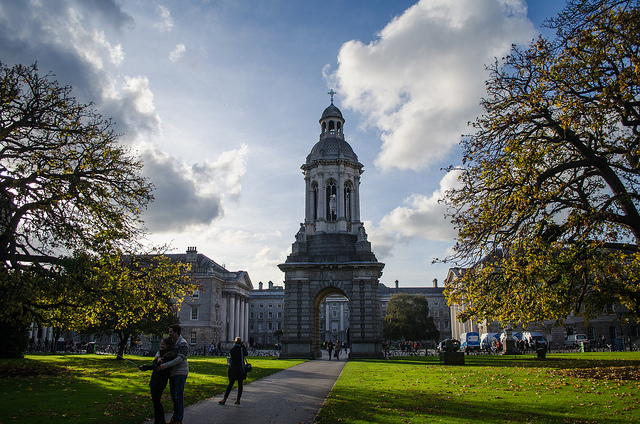TEDx Trinity has postponed a proposed discussion on modern-day feminism, after several students objected to the all-white, all-Irish panel that was scheduled to speak.
The event, which was due to take place last night, was postponed when the society issued a statement on the event page admitting “failure on our part”.
An online debate, which saw several prominent feminists argue that the discussion was lacking in diversity, preceded the postponement of the society’s event yesterday evening. Others said the criticisms were unhelpful, given the event was due to feature “legitimate, interesting” feminists.
The talk will instead take place in the new year, “with the aim of including additional voices from other diverse backgrounds”, the society said in its statement.
The panel that was originally announced consisted of comedian Tara Flynn, entrepreneur Andrea Horan, Waking the Feminists Director Lian Bell, Ireland’s only clinical sexologist Emily Power-Smith and the director of the Trinity Centre for Gender Equality, Prof Eileen Drew.
In a statement on her Facebook page, Aine Mulloy, the co-founder of GirlCrew – a woman-only social media network that raised over €800,000 in seed funding earlier this year – said: “This is not good enough at all.”
“We all get riled up when panels are all white men, so why does a panel like this not also cause outrage – in many ways it’s more insidious as it can be presented as being ‘diverse’ when it’s not”, she said.
Shubhangi Karmakar, the Treasurer of the Graduate Students’ Union (GSU) and the founder of Repealist, said in a tweet that “pale and female is getting a bit stale too”.
Speaking to The University Times, Karmakar said she was “disappointed with the way the panel was built and constructed”.
“I was just quite disappointed by this idea that modern feminism is so homogenous. This is the way that minority voices are kept out of the public perspective”, she said.
Karmakar said the antagonistic nature of the online debate did “the group a disservice – because their apology wasn’t great but they did actually listen and engage with the spirit of fair criticism”.
In a statement posted on its Facebook page before the event was postponed, the society acknowledged the feedback it had received regarding the lack of diversity on the panel. The society had initially proposed to “ask our panel to address this issue and the failure on our part” as it was “too late to rectify this issue”.
In an email statement to The University Times, Lee Campbell, the President of TEDx Trinity, said: “Whilst we had assembled an amazing panel to talk about their own experiences, we missed the opportunity to curate a truly diverse panel, encompassing underrepresented voices and experiences.”
“The criticism rests squarely on us”, he said, “and should not detract from the amazing group of panellists we had lined up. We are striving to develop a more inclusive event next semester that does modern feminism justice”.
Some hit out at the “hurtful” backlash to the event. In an email statement to The University Times, Jacqueline Mullen, a masters student, said she was “greatly disappointed by the cancellation”, and said the criticism seemed “not at all constructive”.
“Instead of excitement for the panel and encouraging more involvement to promote diversity moving forward, there has been negativity that undermines the very foundation of the event”, she said.
In recent times, there have been several controversies surrounding the hosting of events in Trinity. Earlier this year, the University Philosophical Society (the Phil) cancelled a debate about feminism in the Middle East after concerns were raised about the motion.
In a statement posted on its Facebook page, the Phil said that it had decided “not to go forward with this debate” as “it has become increasingly clear to us that the original motion is insensitive to the women that it concerns – those who are directly affected by it”.
Last year, after the College Historical Society (the Hist) invited Nigel Farage to speak, 23 ordinary members – including three former auditors – of the society wrote an open letter condemning the decision.
The Hist, which had originally planned to award Farage with the Gold Medal for Outstanding Contribution to Public Discourse, subsequently decided against giving Farage the medal but defended the decision to allow him to speak. In a statement posted in the Hist Facebook group, Auditor Paul Molloy said the society has a “mandate to further public discourse and facilitate debate”.







